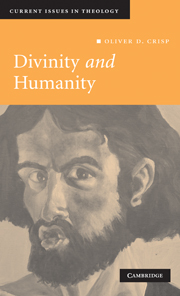4 - Did Christ have a fallen human nature?
Published online by Cambridge University Press: 05 June 2012
Summary
To condemn sin does not belong to someone with a nature like ours, under the tyranny of sin, an ordinary man.
St Cyril of AlexandriaIn the previous two chapters we have considered the human nature of Christ. However, we did not deal with one important issue in recent theological understandings of this doctrine, which has to do with whether or not Christ had a fallen human nature. In this chapter, we turn to this issue.
The humanity of Christ
A number of theologians of the past 200 years have maintained that Christ had a human nature that possessed the property of being fallen, but not the property of being sinful. The most influential among them is Karl Barth. He says: ‘There must be no weakening or obscuring of the saving truth that the nature which God assumed in Christ is identical with our nature as we see it in the light of the Fall. If it were otherwise, how could Christ be really like us? What concern would we have with him? We stand before God characterised by the Fall. God's Son not only assumed our nature but he entered the concrete form of our nature, under which we stand before God as men damned and lost.’
- Type
- Chapter
- Information
- Divinity and HumanityThe Incarnation Reconsidered, pp. 90 - 117Publisher: Cambridge University PressPrint publication year: 2007

